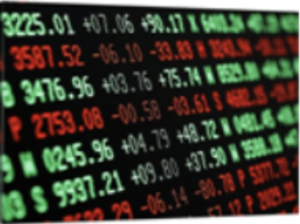SMU Price Ranges: Sheet Up as Price Hikes Gain Traction
Sheet prices rose for a fourth consecutive week following a second wave of price hikes announced by domestic mills.
Sheet prices rose for a fourth consecutive week following a second wave of price hikes announced by domestic mills.
ArcelorMittal and Stelco joined last week’s move by domestic mills to push sheet prices higher.
South Korea and Brazil will not be maxing out their allowable quotas on hot-rolled sheet shipments to the US for 2023, according to government data analyzed by SMU.

Well, what a difference a month makes…
U.S. Steel on Thursday said it planned to increase spot base prices for steel sheet by at least $100 per ton ($5 per cwt).

US hot-rolled coil (HRC) prices are now more expensive than imported offshore product.
Cleveland-Cliffs said on Thursday it's targeting a minimum base price for hot-rolled steel of $800 per net ton ($40 per cwt).
Nucor Corp. aims to raise base prices for hot-rolled coil to a minimum of of $800 per ton ($40 per cwt).
Steel Dynamics Inc. (SDI) reported a drop in third quarter profits on lower prices for flat-rolled steel as well as for fabricated products.
Sheet prices notched a third consecutive week of gains on limited supply and stable demand outside of automotive operations impacted by the UAW strike.
Steel Market Update’s Steel Demand Index remains in contraction territory despite repeated improvements since mid-September, according to our latest survey data.
SMU’s latest survey data are out, and they reflect a consensus among steel buyers that sheet prices have bottomed out and might rebound. Lead times continue to extend. Fewer sheet and plate mills are willing to negotiate lower spot prices. And 70% of survey respondents think prices have already bottomed out or will later this […]
The spread between hot-rolled coil (HRC) and prime scrap prices widened slightly this month, according to SMU’s most recent pricing data.
The sheet market appears poised for a rebound if you’re looking at the indicators we typically track.
The mill negotiation rate for all products SMU looks at fell this week, with hot rolled dropping 13 percentage points, according to our most recent survey data.

US hot-rolled coil (HRC) and offshore product are nearly back even again after domestic prices moved higher for the second straight week.
This week’s survey showed steel mill lead times extending across all product lines tracked by SMU.

If the last few years have taught us anything, it is that nothing is certain.
Sheet prices remain on an upward trend. Many of you expect that to remain the case - assuming that the UAW strike doesn’t drag on much longer.
Sheet prices moved upward for the second week in a row despite the ongoing UAW strike and concerns in some corners that momentum from a price hike last month might be fading, market participants said.
A service center executive recently told me that the best way to make a fool of yourself was to try to predict what flat-rolled steel prices were going to do. He hadn’t expected that hot-rolled coil prices would rebound from less than $600 per ton ($30 per cwt) for some larger buyers to potentially more […]
A slowdown in US steel imports has yet to be seen, as total import licenses in September were about even with August’s import levels.

US hot-rolled coil (HRC) and offshore product are nearing parity again after domestic prices moved higher this week and imports declined again.
Did the price increase announced by Cleveland-Cliffs last week stick? Yes, at least partially.
Sheet prices rose this week on the heels of a price increase announced by Cleveland-Cliffs last week that was quietly followed by other mills.
Steel prices continued to decline last month – a trend we’ve seen repeated since mid-April.
Will the sheet price hike announced by Cleveland-Cliffs (and quietly followed by at least some mills) stick?
US plate prices have been relatively flat this year, especially when compared to sheet products. Case in point; SMU's plate prices stands at $1,455 per ton ($72.75 per cwt) on average, down 7% from a $1,560 per ton peak in April. Our HRC price is at $645 per ton, down 44% from an April peak of $1,160 per ton.
I didn’t see the Cleveland-Cliffs price increase coming on Wednesday. And I didn’t expect to see a target base price of $750 per ton ($37.50 per cwt) for hot-rolled coil. But I’ve since heard that other mills, even if they hadn’t publicly announced anything, had been quietly raising prices before Cliffs publicized its increase. Are […]
On Sept. 15, the UAW went on strike at three plants, one of each of the Big 3. On Sept. 22, the UAW expanded its strike to 38 more GM and Stellantis plants. Since Sept. 15, the HRC futures curve has rallied $60-75 in the November – February futures months. The reason why there has been this breakneck rally is because, uh, well, um. I have no idea. I am as shocked by it as perhaps you are, frankly.